Blockchain News
Dev
165

Image Credit: Dev
$20,000 Blockchain Grant Open for African Developers: Build a Micro-Payments MVP on Fedrok Blockchain
- A funding opportunity of $20,000 is open for African developers interested in creating a micro-transaction platform on the Fedrok Blockchain to address financial access challenges in Chad and Niger.
- Successful applicants will receive funding, technical documentation, mentorship, access to the Fedrok Blockchain platform, and the opportunity to deploy in Chad and Niger.
- The platform should focus on mobile-first micro-transactions with key features like P2P payments, USSD or SMS-based interfaces, wallet functionality, and integration with Fedrok Blockchain.
- Africa-based developers with experience in blockchain, fintech, or micro-payment platforms are eligible to apply by submitting proposals by June 1, 2025, for a chance to build impactful blockchain solutions for financial inclusion in Africa.
Read Full Article
9 Likes
Medium
193

Image Credit: Medium
Enterprise Blockchain Solutions: From Concept to Crypto Launch
- Enterprise Blockchain Solutions have evolved to offer secure, transparent, and efficient business processes across industries, beyond their cryptocurrency origins.
- For enterprises, blockchain presents opportunities to manage data, automate workflows, and introduce new digital assets like crypto tokens.
- Enterprise blockchain solutions are permissioned platforms that enhance data integrity, privacy, security, and regulatory compliance for authorized participants.
- Businesses choose blockchain for transparency, security, efficiency, cost savings, and trust-building within partnerships.
- Key features of enterprise blockchain include permissioned access, customizable smart contracts, interoperability, scalability, and robust security measures.
- Common use cases for enterprise blockchain span industries such as supply chain management, finance, healthcare, identity management, and tokenization.
- Initiating a successful enterprise blockchain project involves defining business objectives, stakeholder analysis, product discovery, risk assessment, and selecting the right development company and platform.
- Choosing a reliable blockchain development partner with experience, skilled team, consultative approach, and ongoing support is essential for project success.
- Selecting the appropriate blockchain platform, designing the architecture, developing the solution, and launching a crypto token are pivotal stages in enterprise blockchain projects.
- Security and compliance considerations, along with addressing challenges like technical complexity, integration, regulatory uncertainty, scalability, and change management, are critical for successful enterprise blockchain adoption.
Read Full Article
11 Likes
Dev
290

Image Credit: Dev
Unveiling Cryptographic Autonomy License 1.0: A Comprehensive Review and Future Outlook
- The article discusses the Cryptographic Autonomy License 1.0, blending open source principles with blockchain-enabled compensation mechanisms.
- It explains CAL 1.0's importance, technical framework, and integration with modern blockchain ecosystems.
- CAL 1.0 aims to prevent exploitation and ensure fair compensation for developers in commercialized open source projects.
- The license introduces features like integrated compensation mechanisms, blockchain transparency, and developer-centric design.
- CAL 1.0's applications span across DeFi, cybersecurity software, and blockchain frameworks for fair revenue sharing.
- Challenges include legal enforcement issues, license compatibility concerns, and complexities for commercial users.
- Future trends may involve enhanced blockchain verification, dual licensing approaches, and greater community governance via platforms like Arbitrum.
- CAL 1.0 addresses gaps in traditional licensing models, emphasizing fair compensation for developers and protection against exploitation.
- The license leverages blockchain technology for transparent revenue sharing and aims to redefine open source funding models.
- Ongoing innovations in blockchain and community feedback are expected to shape the future of open source licensing and fair compensation.
Read Full Article
17 Likes
Scand
46
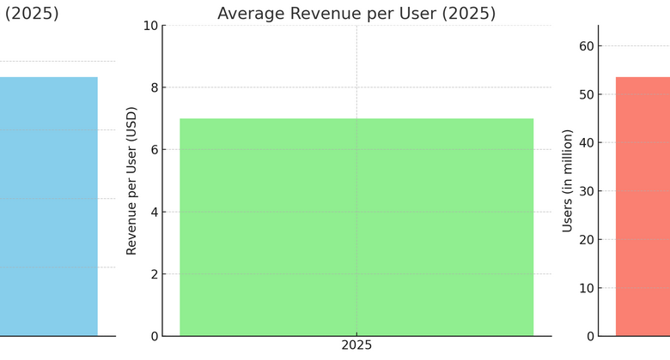
Image Credit: Scand
DeFi Staking Platform Development Company: Full Guide to Building a Secure and Scalable Solution
- DeFi, or Decentralized Finance, involves financial services on a blockchain, eliminating middlemen like financial institutions.
- Staking in DeFi allows users to earn passive income while securing and supporting blockchain networks.
- Staking involves users locking up cryptocurrency to receive rewards, primarily used in Proof of Stake (PoS) blockchains.
- Different staking methods include direct staking, delegated staking, pool staking, and exchange-based staking.
- Benefits of staking for users include passive income, governance participation, non-custodial control, and investment selection.
- For businesses, staking can enhance user engagement, stabilize token prices, generate income, and attract liquidity.
- A DeFi staking platform allows users to stake cryptocurrencies to earn rewards like interest, governance tokens, or transaction fees.
- Key features of a DeFi staking platform include smart contract development, multi-cryptocurrency support, earning estimators, reminders, and referral bonuses.
- Steps to build a DeFi staking platform include market research, blockchain selection, UI/UX design, partnering with a development company, testing, security audits, deployment, and post-launch maintenance.
- The cost of building a DeFi staking platform varies based on factors like technology stack, security, design, and custom features, with estimated ranges from $40,000 to $250,000+.
Read Full Article
2 Likes
TheNewsCrypto
280

SHIB Long-Term Price Prediction: $0.01 Still Possible? Ozak AI’s Fundamentals Say Otherwise
- Shiba Inu (SHIB) faces challenges in reaching $0.01 due to its tokenomics and market cap requirements, making it a less probable target without significant changes.
- Ozak AI emerges as a utility-focused crypto project with real-world applications and strong fundamentals, attracting early investors with a potential 300x return and positioning itself as a more stable long-term investment option.
- Ozak AI offers features like Ozak Stream Network, Prediction Agents, DePIN Integration, and Ozak Data Vaults, leveraging AI and blockchain technologies for predictive analytics and secure data storage.
- While SHIB continues to have speculative appeal driven by community hype and market cycles, Ozak AI's growth is supported by utility, innovation, and a clear adoption roadmap, making it an attractive choice for investors focusing on long-term value.
Read Full Article
16 Likes
TheNewsCrypto
368

Why Are Past Successes Like Ethereum (ETH) and Shiba Inu (SHIB) Not Shining in 2025? Find Out What’s Replacing Them
- Ethereum (ETH) and Shiba Inu (SHIB) are struggling in 2025 due to scaling challenges and lack of innovation.
- Rexas Finance (RXS) is emerging as a leader in the crypto market with real-world asset tokenization and innovative features like AI-NFT fusion and passive income through fractional ownership.
- Rexas Finance has raised $48M and sold 92% of its final presale stage, indicating strong investor interest and potential for growth.
- In celebration of its presale success, Rexas Finance is conducting a $1 million giveaway and preparing for major exchange listings.
Read Full Article
22 Likes
TronWeekly
92
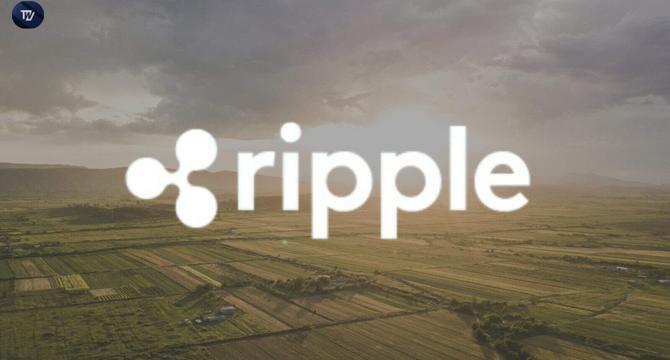
Image Credit: TronWeekly
Ripple and Mercy Corps Ventures Launch Blockchain Pilot for Colombian Farmers
- Ripple and Mercy Corps Ventures launch a blockchain pilot using the XRP Ledger for 300 Colombian smallholder farmers aiming to increase incomes and financial inclusion.
- Initiative addresses barriers in rural agriculture through digital records and deferred payment models like the 'Farm Now, Pay Later' (FNPL) to help farmers obtain credit.
- The pilot promotes inclusivity with 46% female participation, surpassing national averages, and aims to improve product traceability, transparency, and sustainability in the agricultural sector.
- This blockchain initiative not only benefits the participating farmers but also offers a replicable model for agricultural communities worldwide, driving financial inclusion and sustainable economic growth.
Read Full Article
5 Likes
TronWeekly
194

Image Credit: TronWeekly
Ripple’s RLUSD Gets Massive Boost as Banxa Unlocks Global Support
- Australian fintech platform Banxa integrates Ripple's RLUSD stablecoin, enhancing access to compliant digital finance.
- Ripple partners with Mercy Corps Ventures and WËIA for a pilot program benefiting Colombian farmers, aiming to boost traceability and income using the XRP Ledger.
- Banxa now supports RLUSD stablecoin for seamless purchase through various payment methods, promoting stability and efficiency in transactions.
- Ripple's initiatives with RLUSD and blockchain traceability in agriculture signify a dual focus on enterprise blockchain adoption and financial inclusion.
Read Full Article
11 Likes
Medium
414
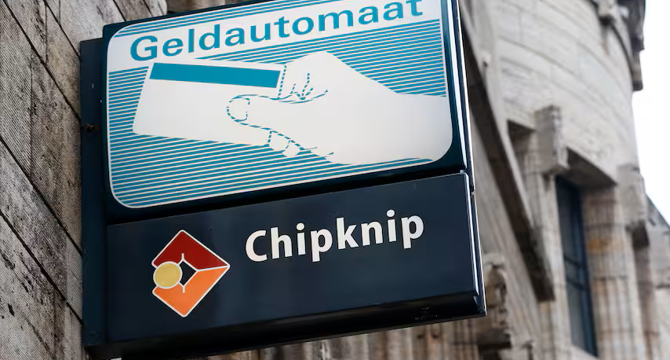
Image Credit: Medium
“Digital cash” without privacy is meaningless
- The European Central Bank (ECB) announced the Digital euro project with a focus on privacy and security, aiming to be an alternative to cash.
- The debate on digital cash raises concerns about the trade-off between privacy, security, and offline capability in payment systems.
- Cash offers privacy and offline payments but lacks security, while electronic payment methods provide security but compromise privacy.
- Central Bank Digital Currency (CBDC) is considered valuable only if it includes robust privacy protection to safeguard user information.
- Privacy is crucial in payment systems to ensure confidentiality, as exemplified by sensitive scenarios like purchasing a pregnancy test discreetly.
- Implementing privacy in CBDC requires user ownership of keys, allowing for secure transactions without compromising personal data.
- Offline payments necessitate mechanisms like signatures and secret compartments to prevent abuse and maintain user privacy.
- Past systems like DigiCash prioritized privacy and offline transactions through smart cards, highlighting the importance of user-controlled keys.
- Creating a privacy-focused payment system may be complex but essential for empowering individuals to make confidential transactions, even in sensitive situations.
- The emphasis on privacy and security in CBDC development is critical to ensure the future of digital cash aligns with the principles of confidentiality and user control.
Read Full Article
24 Likes
101Blockchains
336
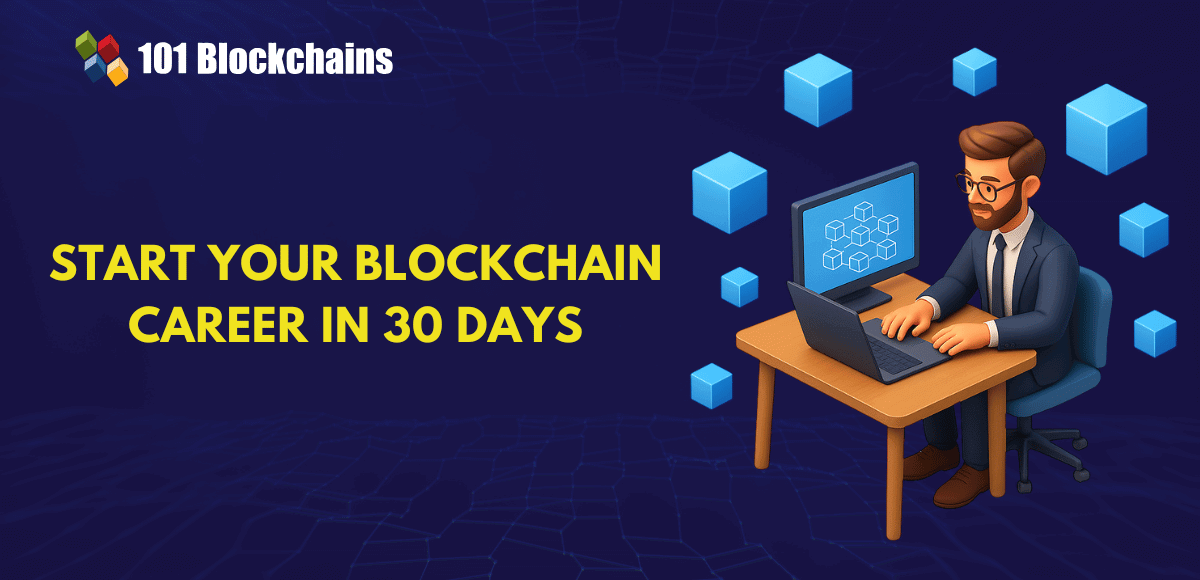
Image Credit: 101Blockchains
How to Start Your Blockchain Career in 30 Days?
- You can start a career in blockchain in 30 days by following a structured roadmap to acquire relevant skills.
- Blockchain technology offers transparent, tamper-proof databases and numerous career opportunities in various sectors like DeFi, supply chain, healthcare, etc.
- Professionals with diverse skills like developers, project managers, designers, etc., are crucial for the blockchain ecosystem's growth.
- While starting a blockchain career within 30 days may not lead to senior roles, it can lay a solid foundation for further growth.
- The 30-day plan focuses on understanding blockchain fundamentals, different networks, tools, use cases, and career paths.
- Week 1 involves learning about distributed ledgers, cryptography basics, blockchain trilemma, and understanding Bitcoin and Ethereum.
- Week 2 delves into smart contracts, consensus mechanisms (POW, POS), and real-world blockchain applications beyond cryptocurrencies.
- Week 3 includes exploring major blockchain platforms, development tools, enterprise solutions, and researching various job roles in blockchain.
- Week 4 emphasizes revising and networking, setting long-term learning goals, and continuing education to enhance career prospects in blockchain.
- The dedication to learning blockchain concepts, acquiring skills, and strategic planning are essential for a successful start in a blockchain career.
Read Full Article
20 Likes
Medium
271
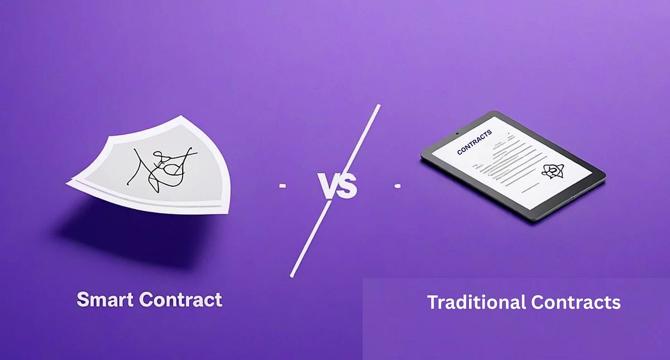
Image Credit: Medium
Smart Contracts vs Traditional Contracts: Key Differences Explained
- Traditional contracts are written on paper, signed by hand, and enforced through legal systems while smart contracts are self-executing agreements written in code and run on blockchain platforms.
- Traditional contracts require manual execution based on parties fulfilling obligations, while smart contracts execute automatically when predefined conditions are met.
- Smart contracts offer transparency through visible terms on a blockchain, while traditional contracts may have information asymmetry or misunderstandings.
- Execution of traditional contracts can take days with legal fees and third-party involvement, whereas smart contracts execute near-instantly, reducing costs significantly.
- Smart contracts are immutable once deployed, providing protection against unauthorized alterations, while traditional contracts may be altered, forged, or lost.
- Enforcement of traditional contracts relies on legal systems, leading to time-consuming disputes, while smart contracts have automatic enforcement with little room for dispute.
- Smart contracts democratize access to global business opportunities and are secure by design due to the tamper-resistant nature of blockchain records.
- Smart contracts are expected to become more prevalent as blockchain technology matures, offering automation, transparency, and security advantages over traditional contracts.
- Businesses considering smart contracts should consult legal experts and experienced developers to navigate complexities and ensure proper implementation.
- Understanding the differences between smart contracts and traditional contracts is crucial for businesses looking to optimize their agreement processes and unlock new efficiencies.
Read Full Article
16 Likes
Dev
73

Image Credit: Dev
ERC-4337’s Updated Developer Guide for AA, Ethereum Activates Pectra, Circle’s Gasless Transactions, DeFi Wallets vs AI Agents
- Ethereum activates the Pectra upgrade, increasing the maximum staking amount to 2,048 ETH and introducing features like fee payments in stablecoins and automated payments.
- Circle leverages Ethereum's EIP-7702 to enable gasless USDC transactions, simplifying onboarding and daily payments for users.
- Tether introduces a Wallet Development Kit aiming to power one trillion non-custodial wallets with gasless transactions and enhanced user sovereignty.
- ERC-4337 releases an updated developer guide to help leverage account abstraction and the Pectra upgrade for improved wallet and DApp experiences on Ethereum.
- Magic Labs co-founder emphasizes the need for DeFi wallets with programmable guardrails to secure AI agents and prevent potential risks and exploitations in automated DeFi strategies.
- The Pectra upgrade and associated EIPs aim to enhance staking efficiency, user experience, and scalability potential, positioning Ethereum competitively in the blockchain space.
- Gasless transactions introduced by Circle and Tether's Wallet Development Kit reflect a broader industry focus on enhancing user experience and accessibility in blockchain transactions.
- The convergence of account abstraction, smart contract wallets, and AI agents highlights the evolving landscape of decentralized finance infrastructure and the need for secure, programmable solutions.
- Developers are encouraged to explore account abstraction and the opportunities it presents, supported by tools like Etherspot's Modular SDK and TransactionKit for streamlined development.
- Overall, the articles underscore ongoing advancements in Ethereum, DeFi infrastructure, and wallet technology, aiming to address user needs, streamline processes, and enhance security in blockchain operations.
Read Full Article
4 Likes
TheNewsCrypto
455

Presale Momentum Surges Past $20M as This Rising Crypto Edges Closer to Full Allocation
- Lightchain AI has raised over $20.2 million in its presale, drawing significant attention from global investors and positioning itself as a top contender in blockchain innovation.
- The project's utility focus, innovative infrastructure, and strong tokenomics have contributed to its momentum across international markets, with tokens priced at $0.007, offering an accessible entry point for investors.
- With its AI integration and blockchain technology, Lightchain AI addresses industry challenges and is forecasted to reach $1 by Q2 2025, providing potential returns for early investors.
- As the presale approaches full capacity, the rising demand for LCAI tokens is creating a buying frenzy, with investors eager to participate in the project's groundbreaking advancements in consensus algorithms and scalability solutions.
Read Full Article
27 Likes
Global Fintech Series
64

Image Credit: Global Fintech Series
Fireblocks Report: Stablecoins Move from Experiment to Production With Revenue Growth As Top Driver
- Stablecoin transactions on Fireblocks reach $40B per quarter, with stablecoins shifting from experiment to production in global payments industry.
- Fireblocks released its annual payments report, State of Stablecoins 2025, based on insights from 295 C-suite leaders across banking, fintech, and crypto-native firms.
- Report indicates stablecoin payment programs are live, piloting, or planned, with revenue growth, liquidity control, and market expansion being prioritized over cost savings.
- The global stablecoin market is expected to reach $2 trillion in the next 3 years, with stablecoins reshaping global commerce and payment players like Visa, Mastercard, and Stripe launching stablecoin-powered products.
Read Full Article
3 Likes
TechJuice
55

Pakistan Crypto Council, US Envoy Talk Blockchain, AI & Youth Empowerment
- Pakistan Crypto Council CEO met with Acting US Ambassador to Pakistan to strengthen collaboration in the digital economy.
- Focus of the meeting was on empowering Pakistan's youth with skills in blockchain and artificial intelligence.
- Discussions included launching joint training programs, talent exchange initiatives, and signing MOUs between US tech companies and Pakistani startups.
- Pakistan Crypto Council reiterated commitment to leveraging blockchain for diplomatic, educational, and economic purposes to ensure Pakistani youth lead in global digital revolution.
Read Full Article
3 Likes
For uninterrupted reading, download the app